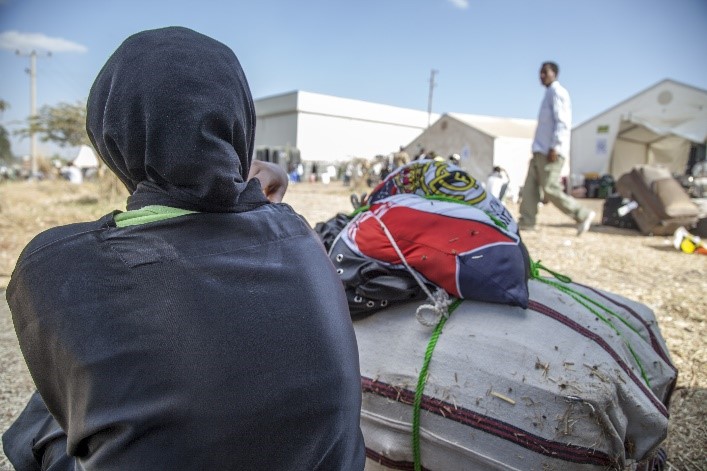These Two Ethiopian Women Survived Trafficking
An ever-present danger for irregular migrants in the Horn of Africa is the fear of being trafficked: a very real possibility, especially for women and children.
In most cases, victims of trafficking (VOT) are drawn by the false promise of a lucrative job, or a better opportunity for them and their loved ones. Their documents are usually confiscated. The victims are kept away from the outside world and made to work with little or no pay, sometimes in the sex trade.
Take 28-year-old Lensa* from Oromia, the most populated of Ethiopia’s nine regional states. Persuaded by smugglers, she decided to migrate to Sudan en route to Libya. Upon arrival in Sudan, her “employer” kept her documents, denied her basic needs and forced her to work long hours. Her condition worsened and she decided to continue her journey to Libya where she was detained, physically abused and faced attempted sexual abuse.
There is also the case of Zinash*, a 40-year-old Ethiopian mother who lived in Sudan with her family. She made the decision to migrate to Europe for better opportunities. While transiting through Libya, Zinash, along with her family, were held captive and forced into domestic work. Her 12-year-old son and 18-year-old daughter also faced extreme hardship.

Both Lensa and Zenash recently returned home, assisted by the EU-IOM Joint Initiative for Migrant Protection and Reintegration in the Horn of Africa (the Joint Initiative). They were part of a group of six VOTs.
Upon their arrival in Ethiopia, Lensa and Zinash - together with her children - received medical and psychosocial support and were referred to a psychiatric clinic for further mental health screening.
Lensa has been referred to the Good Samaritan Association, a shelter working in partnership with IOM, and is currently receiving further medical support. Fortunately, Zinash and her children did not suffer the worst of mental illness and are back in their home town preparing for economic reintegration and educational support through the Joint Initiative.
The programme facilitates orderly, safe, regular and responsible migration management through the development of rights-based and development-focused procedures and processes on protection and sustainable reintegration.
It supports the efforts of the government of Ethiopia which has recently improved oversight over recruitment agencies, while also embarking on awareness raising work.
The Joint Initiative, backed by the EU Trust Fund, covers and has been set up in close cooperation with a total of 26 African countries.
*Not her real name
